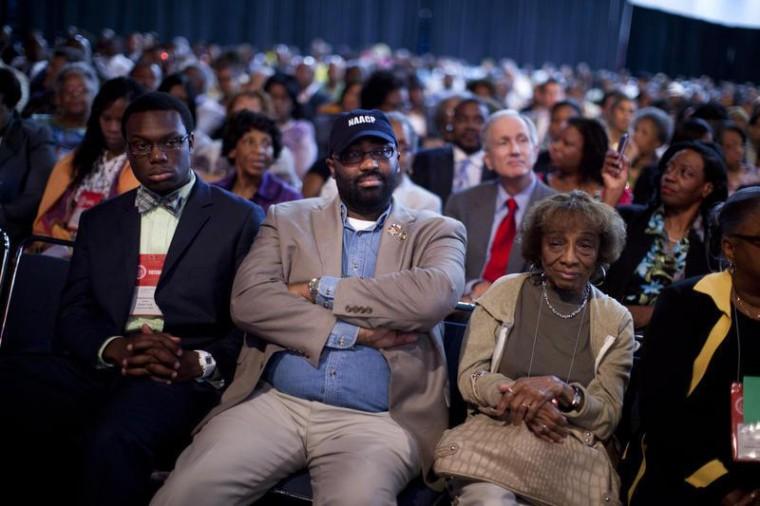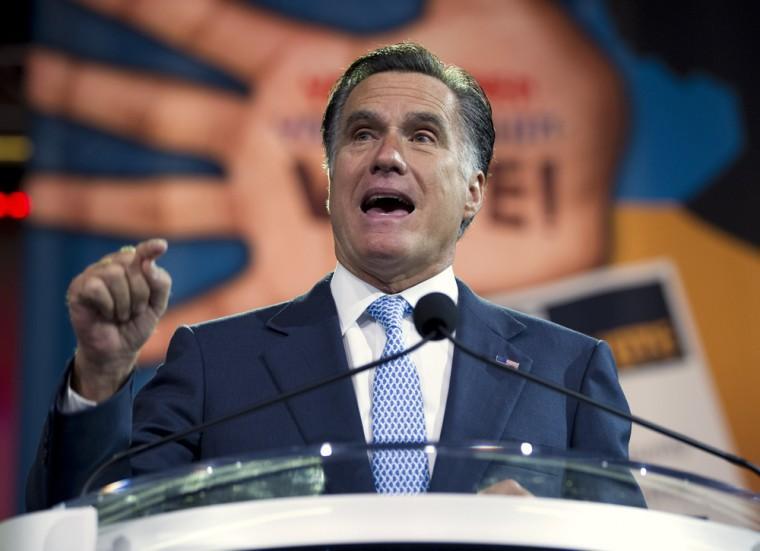University minority students overwhelmingly look to President Barack Obama as the presidential candidate who can deliver equal rights — a top voting issue for them this election cycle.
“The Republican Party is on the wrong side of history as far as LGBTQ and women’s rights go,” said Hope Phelps, an English and psychology senior and the fundraising director for LSU’s Feminists in Action.
Young people care more about social issues than issues like the economy because social issues affect them more, Phelps said.
She is passionate about women’s rights for many reasons, but mainly, this election year is the first time an issue has affected her personally.
“I no longer have to pay $200 a month for birth control,” Phelps said, referring to the Affordable Care Act.
According to Phelps, free or affordable birth control is an important part of women’s rights because unplanned pregnancies set women back. Also, more unplanned pregnancies lead to more abortions, Phelps said.
Phelps said she was confused about Republican presidential candidate Mitt Romney’s stance on women’s rights, but said Obama’s support for equal rights for men and women is clear.
Another factor in Phelps’ decision to vote for Obama is the numerous Republican congressmen who have been making comments about rape, which Phelps said has exacerbated the problem.
Stefano West, a kinesiology senior, is Latino and racially mixed. West also identifies as a gay male.
“If I had to pick one issue, LGBTQ rights is definitely it,” West said. “The economy will always be up and down, and people will always find ways to make more money. But you can’t have ups and downs like that with people’s lives and people’s happiness.”
Like Phelps, West said Obama shows clear support for minority rights, but Romney’s stance is vague.
“With Romney, the movement would not progress. It would probably stay the same, but it might get worse,” West said.
West said that the repeal of Don’t Ask, Don’t Tell and Obama’s support for Pride month are two instances that show the president’s support for LGBTQ rights.
Romney’s offensive statements about minorities in the viral video made at a private fundraiser earlier this year showed his true opinion on minorities, West said.
Although West said most of his friends support his status as a minority, there is tension with his friends who don’t share his perspective on the presidential candidates.
“When people I know say they’re voting for Romney, I wonder if my rights matter at all to them,” West said.
Estefania Reichard, an international studies senior and president of the Hispanic Student Cultural Society, said she will not vote for Romney because his higher socioeconomic status makes him unaware “of the struggles that the common member of the working class and middle class both feel.”
Supporting the Patient Protection and Affordable Care Act, also known as Obamacare, Reichard supports women’s health issues, the belief that birth control should be free and is in favor of Obama’s view on education.
Despite planning to vote for Obama, Reichard acknowledges Romney’s “business savvy,” but stressed that “society isn’t a business” and that Romney has to learn to relate to every group in America to be president.
“He can run a company or a business, and knows how to invest and make millions and billions of dollars, but what can he do for me being a student, a woman, a woman of color and being in a working class?” Reichard asked.
Acquiring a quality education and education funding are some of the most important issues for African-American students, said Kendale Thompson, political science senior and vice president of the Black Student Union.
“Education is the tool and the vehicle that will help us progress because even though we have progressed, not much progression has happened, and when we do progress we’re also getting a fall back,” Thompson said. “If you improve education, you improve the institution which, in turn, will improve the community.”
Although Thompson said his parents are capable of paying for his tuition, he supports Obama’s federal stimulus package and disagrees with Gov. Bobby Jindal’s decision to reject the package.
Thompson said graduate students are unable to receive many of the grants they earned previously due to Jindal’s decisions, and now these students struggle to provide money they do not possess.
“If I had to pick a candidate, I would have to choose President Obama because he seems like the candidate that’s more into improving education and the development of students and making it affordable for them because not every student can go to their parent and ask them to pay for school,” Thompson said.
A registered Democrat, Thompson said he’s willing to vote for a candidate from either major party as long as the views they support positively affect his own.
“If Romney was a whole lot more pro-education, if he had policies that in my view helped the betterment of Americans as a whole, then I might vote for him even though he’s Republican,” he said.






